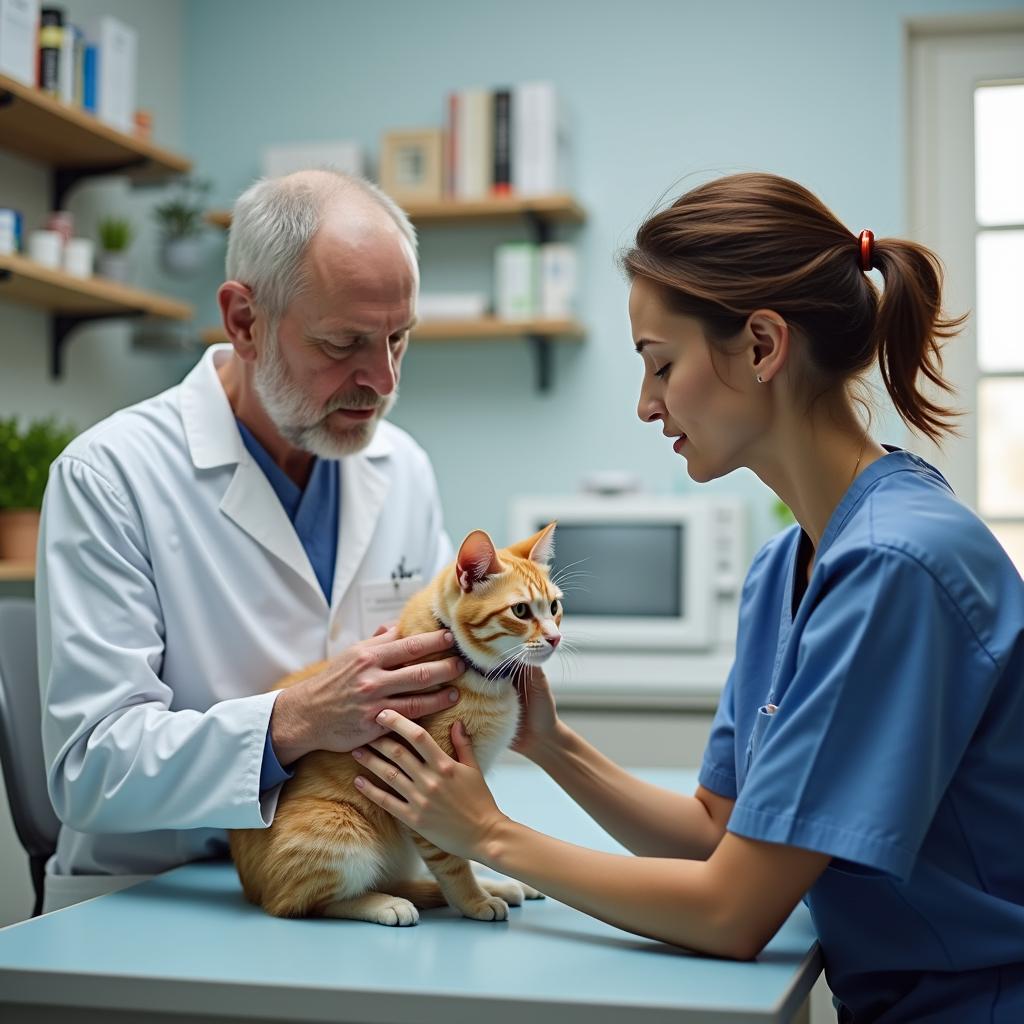Common Cat Health Issues and Symptoms
Common Cat Health Issues and Symptoms
Cats are beloved companions, often serving as cherished members of the family. However, like all pets, they can experience various health issues throughout their lives. Understanding these common cat health issues and their symptoms is essential for any cat owner. By recognizing the signs of potential problems, you can take timely action to ensure your feline friend stays healthy and happy.
1. Dental Disease
Dental problems are among the most common health issues cats face. Feline dental disease primarily involves two main conditions: gingivitis (inflammation of the gums) and periodontal disease (infection of the structures around the tooth).
Symptoms:
– Bad breath
– Swollen or bleeding gums
– Difficulty eating
– Excessive drooling
– Pawing at the mouth
Regular dental check-ups and appropriate dental care at home, including tooth brushing and dental treats, can help prevent serious dental issues.
2. Obesity
Obesity is an increasingly prevalent issue among indoor cats. Overfeeding and lack of exercise contribute to this condition, leading to other health complications such as diabetes, arthritis, and heart disease.
Symptoms:
– Difficulty grooming
– Inactivity or lethargy
– Difficulty jumping or climbing
– Visible fat pads along the spine or abdomen
Maintaining a balanced diet and ensuring your cat gets regular exercise is crucial in managing its weight.
3. Feline Hyperthyroidism
Feline hyperthyroidism is a common endocrine disorder in older cats, characterized by an overproduction of thyroid hormones. It can cause various metabolic changes in the body.
Symptoms:
– Increased appetite
– Weight loss
– Increased thirst and urination
– Hyperactivity or restlessness
– Vomiting or diarrhea
If you notice these symptoms in your cat, a veterinary visit is essential for diagnosis and treatment options.
4. Urinary Tract Problems
Cats are prone to urinary tract issues, including urinary tract infections (UTIs) and bladder crystals or stones. These problems can cause significant discomfort and even lead to serious health complications if not treated promptly.
Symptoms:
– Frequent trips to the litter box
– Straining to urinate
– Blood in urine
– Excessive grooming of the genital area
– Litter box avoidance
Ensuring your cat stays hydrated and regularly visiting the vet can help prevent urinary tract problems.
5. Kidney Disease
Chronic kidney disease (CKD) is common in older cats and can significantly affect their overall health. As the kidneys decline in function, they are unable to effectively filter waste from the blood.
Symptoms:
– Increased thirst and urination
– Weight loss
– Decreased appetite
– Vomiting
– Lethargy
Early detection through regular health check-ups can allow for management strategies that improve your cat’s quality of life.
6. Skin Conditions
Cats can develop various skin issues, including allergies, parasites (such as fleas), and bacterial infections. Skin problems can cause a lot of discomfort and should not be ignored.
Symptoms:
– Excessive itching or scratching
– Redness or inflammation
– Hair loss
– Scabs or sores
– Unusual odors
Using flea prevention, monitoring for allergies, and providing regular grooming can help maintain healthy skin and coats.
7. Hyperlipidemia
Hyperlipidemia is a condition characterized by high levels of fat in the blood, often stemming from obesity or other underlying health issues. While it can occur in cats of any age, it is more prevalent in those that are overweight or have other metabolic conditions.
Symptoms:
– Loss of appetite
– Weight loss
– Vomiting or diarrhea
– Lethargy
Diet modifications and addressing underlying health issues are critical in treating hyperlipidemia.
8. Respiratory Issues
Cats can suffer from respiratory problems, including asthma, bronchitis, and upper respiratory infections. These can cause breathing difficulties and overall discomfort.
Symptoms:
– Coughing or wheezing
– Labored breathing
– Nasal discharge
– Decreased activity level
– Open-mouth breathing
Prompt veterinary care is crucial for any signs of respiratory distress.
9. Pancreatitis
Pancreatitis in cats is an inflammation of the pancreas, leading to abdominal pain and digestive issues. It can be acute or chronic and can result from dietary indiscretion or other health issues.
Symptoms:
– Vomiting
– Diarrhea
– Abdominal pain (may be indicated by reluctance to be touched)
– Decreased appetite
– Lethargy
If you observe any of these symptoms, consult a vet for an accurate diagnosis and treatment.
10. Cancer
While the word “cancer” can be daunting, it’s important to note that many types of cancer can be treatable, especially when caught early. Cats can develop various cancers, including lymphoma and squamous cell carcinoma.
Symptoms:
– Unexplained weight loss
– Lumps or abnormalities on the body
– Changes in appetite
– Difficulty breathing or coughing
– Persistent vomiting or diarrhea
Routine veterinary examinations and immediate attention to any abnormal changes can be key in detecting cancer early.
Conclusion
Being aware of the common cat health issues and symptoms is vital for any cat owner. Regular vet visits, a balanced diet, and consistent observation of your cat’s behavior can help you identify problems early on. Timely intervention often leads to better outcomes and a healthier, happier cat. Always consult a veterinarian if you have concerns about your cat’s health – they can provide the best advice tailored to your furry friend’s specific needs. Monitoring your cat’s health not only enhances their quality of life but also ensures that you can enjoy many happy years together.







